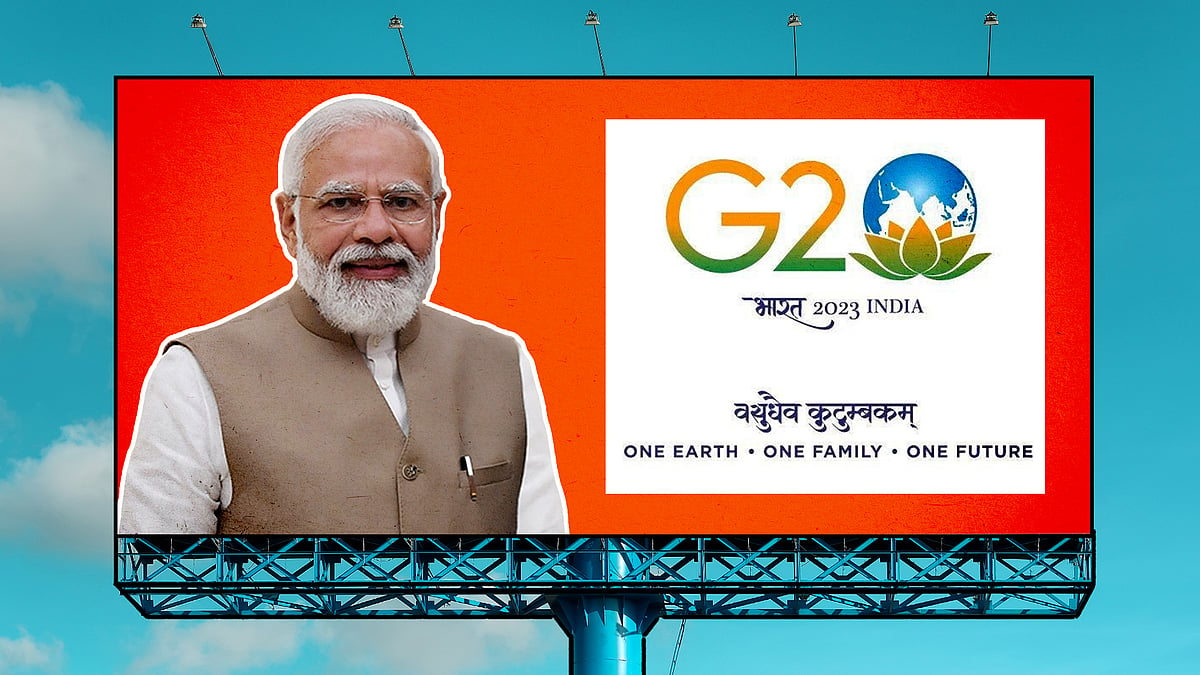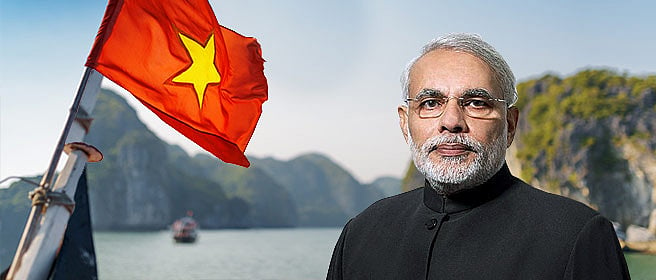G20 summit: India steers focus to bloc’s economic mandate, resists geopolitics on Ukraine
The lack of consensus on Ukraine within the G20 was apparent last month.
About two weeks ahead of the G-20 summit in New Delhi, Russian president Vladimir Putin spoke to Prime Minister Narendra Modi to convey his inability to attend the meet. He will be represented by Russia foreign minister Sergey Lavrov. This wasn’t unexpected – Putin skipped the recent BRICS meet in South Africa and the G20 summit in Bali last November. The only exception he had made was for the SCO summit in Samarkand last year.
Putin’s absence from the G20 summit was confirmed by the Kremlin last week on account of his focus on “special military operation” in Ukraine. Thus, his phone conversation with the Indian PM touched upon other issues of bilateral interest besides iterating Russia’s cooperation for the two-day summit starting on September 9. That, however, doesn’t take away from the fact that Putin would be conspicuous in his absence at the summit.
The shadow of the Ukraine war over the G20 summit is visible, even if it may not loom large. Its geopolitical spillover can be seen in the differences of opinion of the member countries over the nature of the ongoing war and the sanctions levied against Russia. India’s tightrope walk on the issue, while refusing to toe the line of the US-led western bloc has been a delicate exercise. The balancing of key interests is mirrored in India’s expression of strategic interest on the issue.
The lack of consensus on Ukraine within the G20 was apparent last month as India, as the host, had to issue the chair’s summary and an outcome document of the G20 finance chiefs and the central bank heads, instead of a final communiqué. India attributed the lack of converging voice to not having a “common language on Russia-Ukraine war”.
This was preceded by how the bloc’s foreign ministers’ February meet in Delhi and the finance ministers’ March meet in Bengaluru were also confined to the chair’s summary. The summary noted that a majority of the members condemned Russia for the war. But India distanced itself from such a stand, choosing to be non-committal on the question, while Russia and China had clear objections to such a condemnatory line of the majority of members. These meets had almost coincided with India abstaining from voting on the Ukraine resolution in the General Assembly in the last week of February. This was one of the few other such votings in the UNGA in which India opted to abstain, and sometimes did so with explanatory notes which called for diplomatic solutions and the cessation of violence.
It may be recalled that before taking over the G20 presidency in December last year, India had contributed to the final draft of the Bali summit last November, something that the White House spokesperson had appreciated. The ‘consensus’ text, as Indian foreign secretary Vinay Mohan Kwatra had said then, noted the broader concerns but also registered the decision of some G20 members to stay away from signalling only one side of the conflict. Even if the summit did use in its text the Indian prime minister’s “today’s is not an era of war” quip at the SCO summit in Samarkand in September last year, India was well aware of the context and limits of such generality in its delicate navigation of highly-valued strategic ties with Russia.
Put in perspective, it wasn’t a point of departure. India’s approach of ‘cessation of hostilities’ can be traced to early days of the conflict. So any claim to the contrary was always a case of misreading India’s stand. The subsequent diplomatic interactions and voting pattern at the UNSC have made it clear that India isn’t anywhere near being weaned away from taking a strategically autonomous stand on its time-honoured ties with Russia. It was in fact keeping an elbow room for itself.
Hence, it was important for India to stay clear of the risk and the trap of getting into a mediatory role. There was a chance that the G20 presidency could be misconstrued to suggest a more proactive role for India in attempting conflict resolution, given the fact that it has some leverage of a favourable audience in both Moscow and Kyiv. But New Delhi had to be cautious to not stray into the diplomatically fraught zone of mediation.
The reasons for it weren’t far to seek. As a section of foreign policy had put it perceptively, such mediatory roles not only bring little diplomatic rewards but in the process also expose the extent of bilateral or global clout. In the interest of competitive power projection, it is unwise to fall for the mediatory trap. Moreover, from a different era, though not from too distant a past, India carries the scarred memory of burning its fingers in its Afghanistan mediation efforts in the 1980s. It was talked into mediating by the US, the results of which the Indian government only regretted.
As a multilateral group, born in the aftermath of the Asian financial crisis of 1998, and elevated to the summit level talks after the global financial crisis of 2008, the G-20’s primary focus has been the global economy, trade and the related issues. In the last few months, with over 200 meetings on specialised issues and sectors, India has stuck to that emphasis of the group that has member countries who account for around 75 percent world trade and 85 percent of global trade, and almost 70 percent of world population. New Delhi has largely revolved the agenda of the meet around the group’s economic mandate, and has not let the interventionist tendencies of geopolitics take the centre stage. In the midst of this, from an economic perspective, India has foregrounded a global south pitch in its presidential agenda, the invitation to the 55-member states African Union to join the group being a part of the outreach efforts.
With New Delhi all set for the G20 summit, India has been careful in keeping the multilateral high table clear of tricky geopolitical rivalries, especially in the shadow of Ukraine war. In anchoring a largely economic, energy and security driven agenda for the group, with the subtext of the concerns of the developing world, India has been clear in keeping the bloc to its earlier moorings.
 India’s G20 presidency: Government incurs expenses of Rs 50.6 crore on outdoor ads
India’s G20 presidency: Government incurs expenses of Rs 50.6 crore on outdoor ads Here’s why Modi visited Vietnam before the G20 Summit
Here’s why Modi visited Vietnam before the G20 Summit